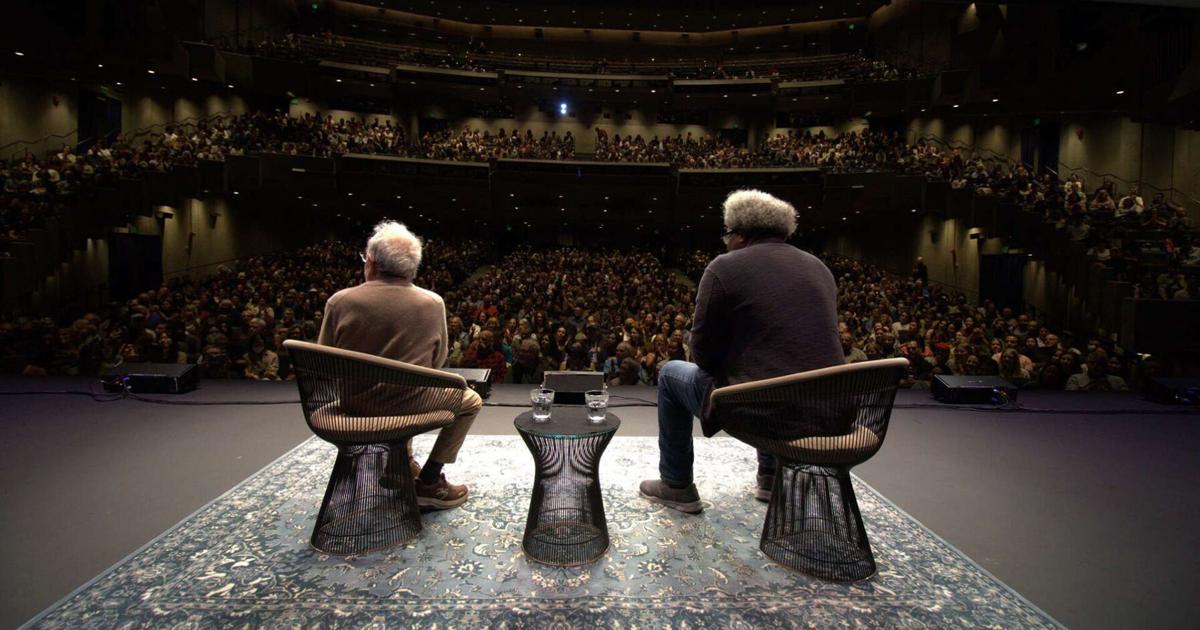On the evening of Oct. 8, former UC Berkeley Professor Robert Reich returned to campus after a screening of “The Last Class,” a documentary that follows his final semester teaching on campus. The film follows Reich throughout the semester as he reckons with his departure from teaching and the many uncertainties he has for the future of the United States.
His last class, “Wealth and Poverty,” was designed to provide more than just an explanation of how inequality has been entrenched into our country. It also seeks to expose the emotional reality of data in students’ lives. “This is not a theory class,” Reich tells his students. This subject is happening in the world in both big and small ways all the time.
Reich’s humility and unceremonious discussion of his impressive career — both in the film and on stage — was almost comical. In one of the film’s scenes, Reich guides the camera around his cluttered office as he consolidates his mementos covered in pink sticky notes. Reich points out his cabinet chair from his time as Secretary of Labor for former President Bill Clinton’s administration, walls of newspapers, various awards and, of course, his Newt Gingrich bobblehead. UC Berkeley students call this office his museum — a warm, unassuming collection of oddities that represent his legendary career.
After the screening, Reich was met with a standing ovation as he shuffled across the stage to sit beside Emmy Award-winning writer, comedian and activist Kamau Bell. Reich discussed the changes he has seen over his 40 years teaching at UC Berkeley, noting the urgency and relentless determination that today’s students bring to the fight for democracy. Reich said he believes that, whether or not they intend to, Gen Z has found itself at the forefront of addressing these issues in new ways.
“They see how awful it is. It’s terrible, but it activates.” Reich said.
Reich said the United States has found itself here because we have been just “letting things happen.” However difficult and complex our current situation is, Reich asserted that removing money from politics and protecting education and media is a good place to begin.
The film’s director and Reich’s longtime friend Elliot Kirschner created both a farewell to Reich and a call to action. At times, the film felt merely introductory into the complex legacy of Reich’s career and study of public policy itself, forming a sweet, sentimental picture of how being an educator has served as the social and emotional underpinning of Reich’s world. In many ways, honoring and humanizing Reich overshadowed the larger issues at hand. However, the film may leave its audience in exactly the right place, asking deeper questions and wanting nuanced answers.
There were many bittersweet moments in which Reich attempted not to scowl as friends and colleagues congratulated him on his retirement throughout the film. I think his departure from the classroom will only propel the tenacious man to do more, having already released his nineteenth book this year in August — a memoir titled “Coming Up Short” — in addition to his active online presence on Instagram and weekly Substack posts. Despite this, there is a real tangible impact and relationship that great educators can have while teaching — something Reich was trying his best to appear unperturbed about leaving behind throughout the film.
“Give them some homework!” Bell said.
Reich’s assignment for the audience was simple: Be active in your community in whatever way you can. He is not concerned with telling us what policy to promote or specific events to attend; that’s for us to discover in our own time.
Reich has hope for these new generations. As for me, I choose to believe in us too.

